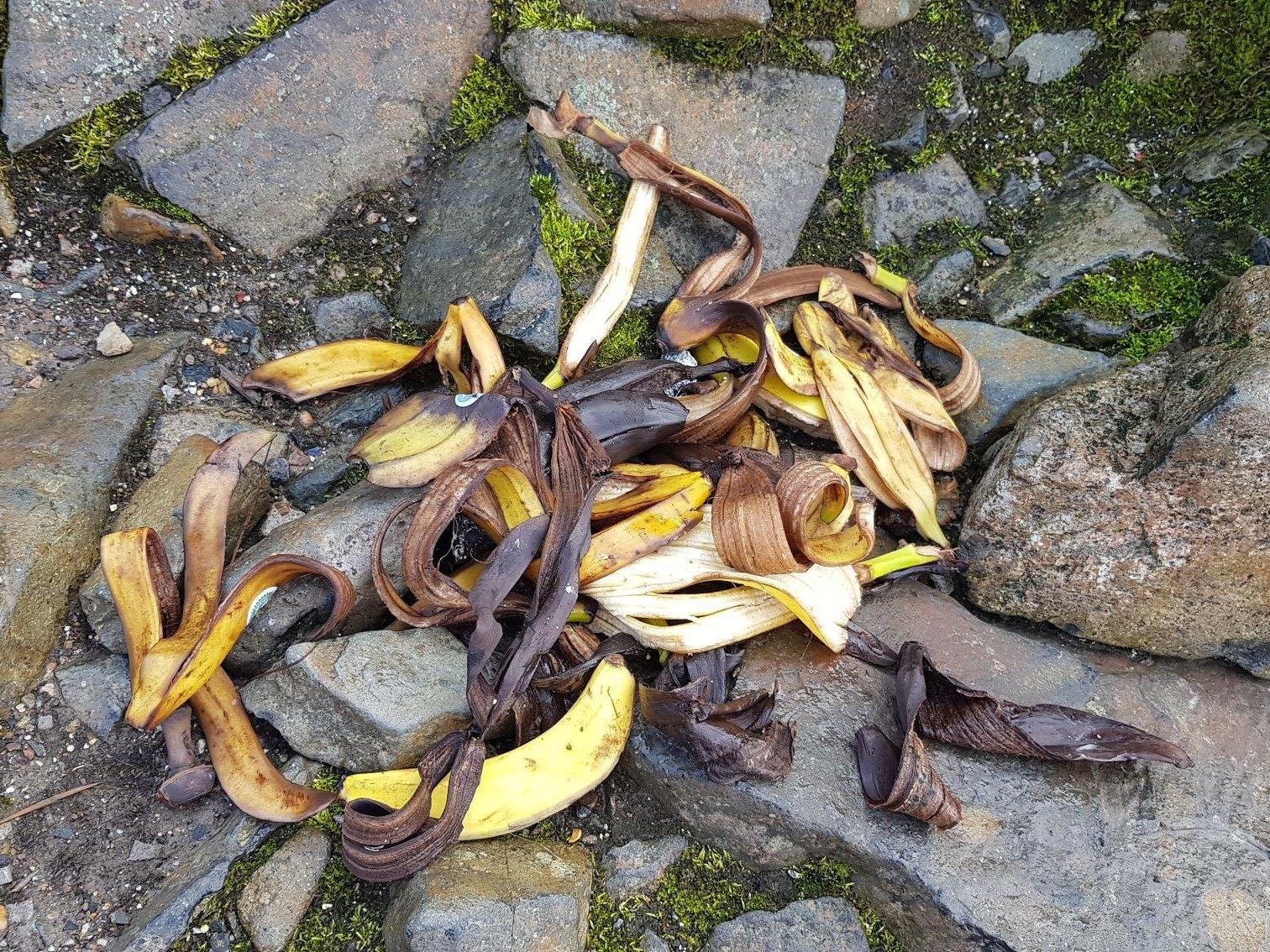Stop dropping banana skins on mountain paths, walkers told
‘People genuinely think that because it’s natural everything will be hunky-dory,’ says climbing group

Your support helps us to tell the story
From reproductive rights to climate change to Big Tech, The Independent is on the ground when the story is developing. Whether it's investigating the financials of Elon Musk's pro-Trump PAC or producing our latest documentary, 'The A Word', which shines a light on the American women fighting for reproductive rights, we know how important it is to parse out the facts from the messaging.
At such a critical moment in US history, we need reporters on the ground. Your donation allows us to keep sending journalists to speak to both sides of the story.
The Independent is trusted by Americans across the entire political spectrum. And unlike many other quality news outlets, we choose not to lock Americans out of our reporting and analysis with paywalls. We believe quality journalism should be available to everyone, paid for by those who can afford it.
Your support makes all the difference.Hill-walkers have been urged not to drop banana skins on the UK’s highest peak after several kilograms of waste were found in just days.
Ben Nevis is strewn with litter largely made up of fruit peel and tissues, according to mountaineering groups. The owner of one expedition company found 8kg of banana skins in just two days last week.
“Ben Nevis has particular problems with litter of all sorts because it’s so popular, and because so many of those who climb it aren’t regular hill-goers and don’t seem to appreciate the harm they are doing by leaving litter, whether it’s plastic or banana peels,” Mountaineering Scotland said in a statement.
Neil Reid, a spokesman for the group, told The Independent: “A lot of people quite genuinely think that because a banana or orange or apple or whatever is natural, it will just rot down into the environment and everything will be hunky-dory.
“[But] the ecology up on the high tops there is quite fragile – very fragile – and it’s based on soil and ground that’s very low in nutrients. If you suddenly put a dose of, in effect, fertiliser up there you’re going to cause a lot of damage.”
Banana skins can take years to decompose at altitude, Mr Reid added.
Ben Nevis, at 1,345m, is the UK’s highest mountain, attracting an estimated 100,000 climbers a year and thousands more to the wider area.
Rich Pyne, who founded the Real3Peaks Challenge campaign to clean up the UK’s best-known mountains, said volunteers had rid the Scottish icon of hundreds of kilograms of rubbish over several years, including 135kg in 2018 alone – though that figure was down from 230kg in 2013.
In a Facebook post last week, he said he found 8kg of banana peel in just two days on Ben Nevis. “It’s a never ending story,” he wrote.
He told The Independent: “Most of the debris I notice in the hills is stuff that has been wedged between rocks, or often stashed behind summits. Anything that is hidden in such a way suggests that the person leaving it behind is most definitely aware that it is not the correct way to dispose of their rubbish.
“You don’t actually see people just dropping litter these days, they all know better. Some have suggested adding bins to the hills, but this does encourage folk to empty their pockets, and leave even more behind.
“Pistachio shells make a regular appearance on the Ben, as well as cigarette ends. All litter is bad, but has different impacts. Plastic will never go away, foodstuff can poison the wildlife, and tissues/faeces spread bacteria.”
First-time climbers can be the worst offenders, Mr Pyne said, likely through ignorance regarding how long organic material takes to break down in a mountain environment; a banana skin may take between two and three years to disappear.
However, following the Real3Peaks organised litter-picks and the long-term work of other volunteers, “the noticeable volume has gone down, and the place is looking much better for it”, he said.
A more pressing problem is walkers going to the toilet because the desire for privacy leads them to pick the same spots over and over again, he said. “Most or all of the accessible and obvious hiding places are open, unflushed toilets, smelling very bad, often draped in used tissues, a vibrant green algae present, and black coloured soil, which has been tainted by the concentrated urine.”
Staying well away from water courses while doing one’s business is important, Mr Pyne said.
He added: “The best thing that anyone outdoors can do, whether in the park, down by the canal, or in the mountains, is to pick up litter they see, and be considerate of where they will ‘go’.”
The next Real3Peaks Challenge is due to take place on 12 October.
Mountaineering Scotland runs a #TakItHame campaign designed to encourage walkers to pick up any litter they see.
Join our commenting forum
Join thought-provoking conversations, follow other Independent readers and see their replies
Comments